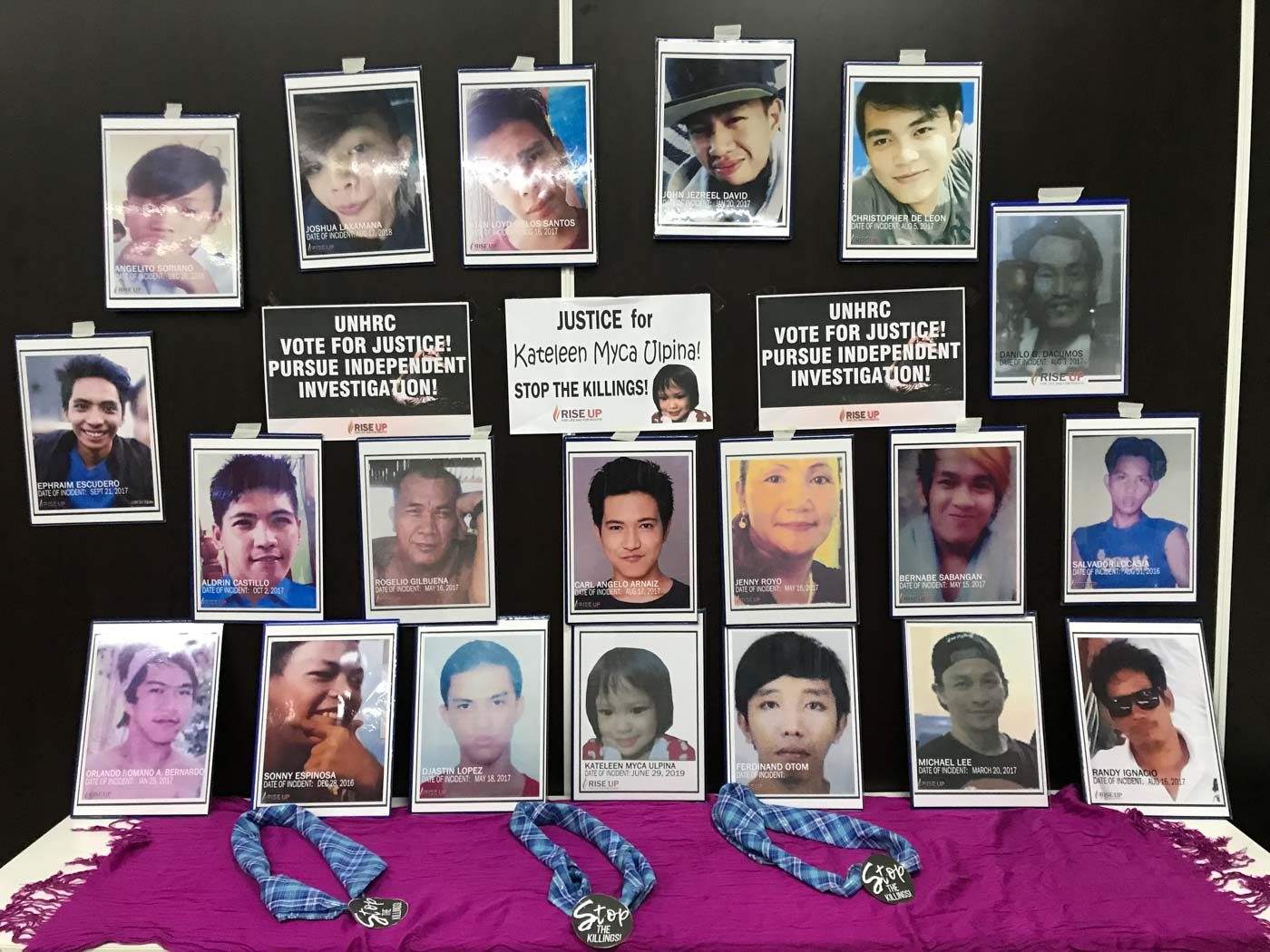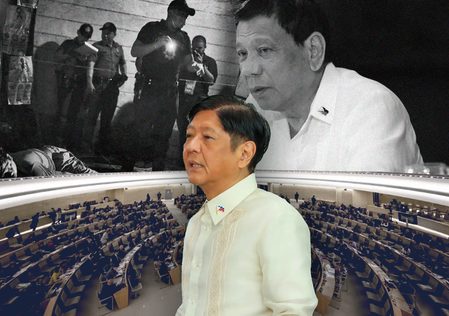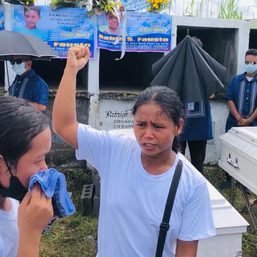SUMMARY
This is AI generated summarization, which may have errors. For context, always refer to the full article.

MANILA, Philippines – Human rights groups on Friday, January 27, welcomed the “much awaited” decision of the International Criminal Court (ICC) to resume the investigation into the violent war on drugs under former president Rodrigo Duterte.
The Philippine Coalition for the International Criminal Court (PCICC) said that the move “brings light amid darkness” as justice continues to be out of reach for thousands of victims and their families. It called on President Ferdinand Marcos Jr. to also hold the Duterte government accountable for its human rights abuses.
“The Philippine government should now realize that diplomatic runs and rhetorics on justice will not stop the ICC to do its work to deliver justice for serious crimes in international law,” PCICC co-chairperson Aurora Parong said in a statement.
“The ICC does not need general statements, it needs evidence that there are serious criminal prosecutions for specific cases in the Philippines,” she added.
The ICC pre-trial chamber on Thursday night Dutch time, January 26, announced that it’s “not satisfied that the Philippines is undertaking relevant investigations that would warrant a deferral of the Court’s investigations on the basis of the complementarity principle.”
This move means that the office of ICC prosecutor Karim Khan can continue its investigation to seek more evidence that could potentially request the issuance of summons or warrants to those involved in the drug war. While it is not yet clear who would be the subject of these possible issuances, the ICC is usually interested in high-ranking officials.
For Fr. Flavie Villanueva, an activist-priest who helps the families of drug war victims, the recent ICC development means Duterte cannot run away from his alleged crimes.
“The ICC’s most recent decision to re-open its investigation of the bloody war-on-drugs orchestrated by former President Duterte and his cohorts speaks loud and clear that ‘you cannot run away from your past sins,'” the priest said in a statement.
He added: “Personally, my invitation to him, ‘if you are one who truly does not back out from trouble, come face this investigation and let the Truth stand.’ For truly, you cannot run from your past sins.”
Karapatan hoped the ICC would continue its proceedings until Duterte is “convicted and punished” for his violent drug war.
“This should also serve as a warning to the current regime for essentially continuing Duterte’s policies on the drug war,” Karapatan secretary-general Cristina Palabay said.
“With the help of international mechanisms provided by bodies like the ICC, we can make a dent on the culture of impunity that has stymied the quest for justice for so long,” Palabay added.
The group also said that other international bodies, particularly the United Nations Human Rights Council, should see this as a signal to conduct its own independent investigation. Despite the efforts of stakeholders, the extent that the council had done was to provide “technical assistance” to the Philippine government despite the continued rising number of deaths.
Official government data shows that at least 6,252 people had died at the hands of the police during anti-illegal drug operations as of May 31, 2022 – a month before Duterte left office in June of the same year. This tally does not include victims of vigilante-style killings, which human rights groups estimate to pull the number up to around 30,000.
Human Rights Watch (HRW) welcomed the latest move of the ICC, as it is the “only credible avenue for justice for the victims and their families.”
“The ICC offers a path forward to fill the accountability vacuum,” HRW deputy Asia director Phil Robertson said.
A May 2020 report by HRW detailed the “harmful consequences” on children left behind by victims of Duterte’s war on drugs. It documented “drastic changes” in children, including those brought about by psychological distress.
The Philippine Human Rights Center (PhilRights) said the latest ICC move “offers hope” to the victims, who can be expected to support the investigation.
“It also reveals the Philippine government’s belated efforts to investigate for the hollow gesture that it is,” PhilRights executive director Nymia Simbulan said.
“We call on all Filipinos to join this call for justice and demand an absolute end to all state-sponsored violence,” she added. – Rappler.com
Add a comment
How does this make you feel?




![[WATCH] Bamban POGO scandal: There’s a bigger fish than Alice Guo](https://www.rappler.com/tachyon/2024/07/inside-track-tcard-bamban-pogo.jpg?resize=257%2C257&crop=435px%2C0px%2C1080px%2C1080px)
![[Vantage Point] China’s silent invasion of the Philippines](https://www.rappler.com/tachyon/2024/07/TL-china-silent-invasion-july-16-2024.jpg?resize=257%2C257&crop=318px%2C0px%2C720px%2C720px)

![[The Slingshot] Lito Patay’s 4 hours and 38 minutes of infamy](https://www.rappler.com/tachyon/2024/07/Lito-Patay-4-hours-infamy-July-19-2024.jpg?resize=257%2C257&crop=233px%2C0px%2C720px%2C720px)

![[The Slingshot] A Duterte and Bato cop named Patay](https://www.rappler.com/tachyon/2024/06/tl-lito-patay.jpg?resize=257%2C257&crop=322px%2C0px%2C720px%2C720px)









![[OPINION] Rodrigo Duterte and his ‘unconditional love’ for China](https://www.rappler.com/tachyon/2024/04/rodrigo-duterte-xi-jinping-august-2019.jpeg?resize=257%2C257&crop=91px%2C0px%2C900px%2C900px)

There are no comments yet. Add your comment to start the conversation.